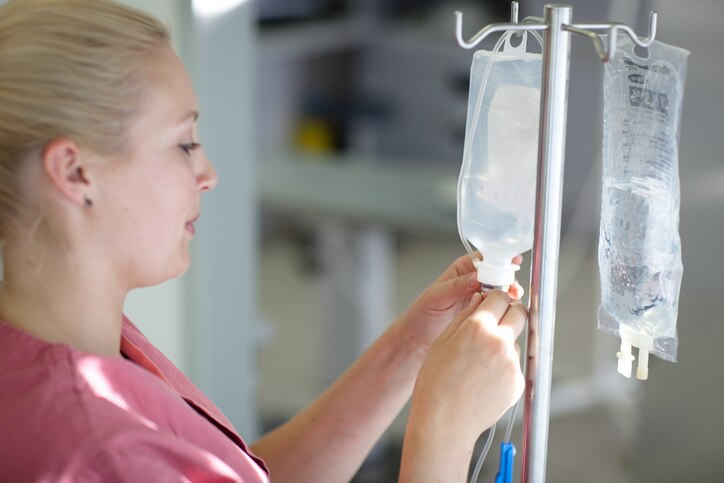Treatment for Adrenal Insufficiency & Addison's Disease
How do doctors treat adrenal insufficiency?
Your doctor will prescribe hormone medicines to replace the hormones that your adrenal glands aren’t making. You’ll need higher doses during times of physical stress.
Hormone replacement
Cortisol is replaced with a corticosteroid, most often hydrocortisone, which you take two or three times a day by mouth. Less often, doctors prescribe prednisone or dexamethasone.
If your adrenal glands aren’t making aldosterone, you will take a medicine called fludrocortisone, which helps balance the amount of sodium and fluids in your body. People with secondary adrenal insufficiency usually make enough aldosterone, so they don’t need to take this medicine.
Your doctor will adjust the dose of each medicine to meet your body’s needs.
Treatment for adrenal crisis includes immediate IV injections of corticosteroids and large amounts of IV saline, a salt solution, with dextrose added. Dextrose is a type of sugar.
Treatment in special situations
Surgery
If you’re having any type of surgery that uses general anesthesia, you may have treatment with IV corticosteroids and saline. IV treatment begins before surgery and continues until you’re fully awake after surgery and can take medicine by mouth. Your doctor will adjust the “stress” dose as you recover until you’re back to your pre-surgery dose.

Illness
Talk with your doctor about how to adjust your dose of corticosteroids during an illness. You will need to increase your dose if you have a high fever. Once you recover, your doctor will adjust your dose back to your regular, pre-illness level. You will need immediate medical attention if you have a severe infection or diarrhea, or are vomiting and can’t keep your corticosteroid pills down. Without treatment, in an emergency room if necessary, these conditions can lead to an adrenal crisis.
Injury or other serious condition
If you have a severe injury, you may need a higher, “stress” dose of corticosteroids right after the injury and while you recover. The same is true if you have a serious health condition such as suddenly passing out or being in a coma. Often, you must get these stress doses intravenously. Once you recover, your doctor will adjust your dose back to regular, pre-injury level.
Pregnancy
If you become pregnant and have adrenal insufficiency, you’ll take the same dose of medicine as you did before pregnancy. However, if nausea and vomiting in early pregnancy make it hard to take medicine by mouth, your doctor may need to give you corticosteroid shots. During delivery, treatment is similar to that of people needing surgery. Following delivery, your doctor will slowly decrease your dose, and you’ll be back to your regular dose about 10 days after your baby is born.
This content is provided as a service of the National Institute of Diabetes and Digestive and Kidney Diseases
(NIDDK), part of the National Institutes of Health. NIDDK translates and disseminates research findings to increase knowledge and understanding about health and disease among patients, health professionals, and the public. Content produced by NIDDK is carefully reviewed by NIDDK scientists and other experts.

